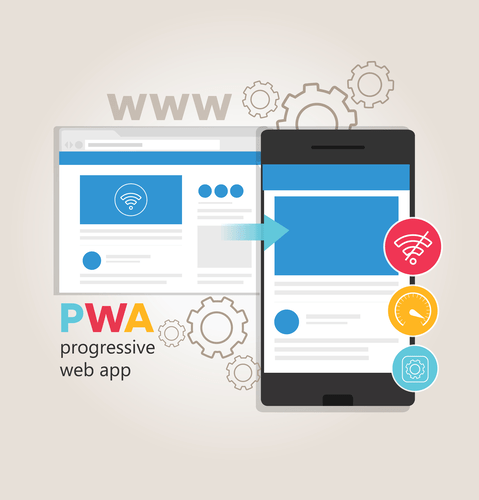Content
RPA bots are very much scalable and can be trusted to manage a huge amount of data, and answer a large number of questions in record time. Operational lags in accounts payable usually occur while processing invoices. Vendor invoices are non-standardized, and need to be cross-checked with purchasing orders and approved. Intelligent automation can streamline this process end-to-end even if the incoming docs are paper-based, thanks to optical character recognition technology . Accounting software combined with robotic process automation allows accountants to redistribute time spent on mundane tasks to tasks with high impact and value. Retrieving and processing data, maintaining records, doing calculations, and completing transactions are a few finance and accounting tasks that an RPA bot can perform.

In accounting, financial services, and banking, RPA is similar to Excel macros. They can run across several accounting and financial systems and process several interactions at the same time. Most financial companies and institutions have to process hundreds of transactional records per day, dig across information systems, extract data, and complete data entry. Let’s talk about RPA use cases in finance and accounting to discover how robotic process automation streamlines the daily routine. Robotic process automation can help finance leaders tasked with modernizing and streamlining processes automate the jobs that accountants perform every day. By implementing RPA, businesses can free up to 30% of a full-time employee’s overall time and save 25,000 hours of rework for an accounting team of 40, according to Gartner research.
Invoice and PO Processing
The finance industry is a perfect playground for implementing process automation. Banks, fin-techs, and insurance companies worldwide are utilizing Robotic Process Automation to achieve more while spending less. We can successfully scale RPA programs for your finance and accounting function, with a 1,200-strong team of RPA experts and consultants, delivering winning implementations to more than 60 F&A clients worldwide. In a survey, 92% of respondents say RPA met or exceeded their expectations in compliance improvements.
- As a leader in this space, Kofax occupies the perfect position to support businesses driving transformative efforts with investments in automation.
- While crucial, comparing account balances across systems can be a time-consuming function.
- These practices are also scalable to match your company needs, as RPA bots are able to tackle massive amounts of data.
- This can save your team time and ensure that all processes are completed accurately and on time.
- Achieve more with robots that effortlessly work with humans and automate tasks using AI through UI and API.
- These trails visualize the entire process and enable historical auditability, reducing the risk of non-compliance.
Software robots can direct invoices to the team member responsible for their approval and set up reminders. They can also match the purchase order with the rpa in finance and accounting invoice, compare them, and flag the mismatches for review. The initial quality of operations is high and the processes are rule-based and standardized.
Main Benefits of RPA in Finance and Accounting
Automation technologies like RPA are revolutionizing the way we do business. Experts believe that as these technologies become more sophisticated, they will have an ever-increasing impact on productivity and efficiency in future years. However, you need to do the research first to determine where in the accounting department it would work best. RPA also allows you to shift focus from time-consuming and remedial labor to more productive and valuable jobs. This allows you to provide services to markets you may not have been able to reach or could not enter due to logistics. Application programming interface , is becoming even more proficient at enabling software to communicate and work together to allow fluid workflow.

The audit processes that would benefit the most from RPA are those that contain defined audit tasks that are repetitive and time consuming and that do not require audit judgment. Public accounting firms may identify an audit process where RPA can add value by considering expert knowledge, such as that of revenue audit leaders, and calculating the actual hours spent performing audit tasks. Furthermore, the most important factor to justify automation is the number of times a firm needs to perform a particular function, which is mainly dependent on the number of similar audits being done. Technology continues to change society at a rapid pace, and accounting and auditing are by no means immune. New technologies are increasingly able to mimic human activity, taking on repetitive tasks more quickly and accurately than people can. The authors provide an overview of the ways in which robotic process automation may change how the profession operates, with a particular focus on the area of revenue audits.
What is the gain for businesses and people while implementing RPA?
Robotic process automation is one of the most efficient and effective ways to automate tasks within a company. RPA is software that can be trained to mimic the actions of a human operator. It can handle a wide variety of tasks, such as copying data from one system to another, opening and navigating software applications, and extracting information from documents. Theoretically, a large number of audit processes may be a good fit for RPA.

Account receivable is similar to account payable in the matter of automation. Tracking progress, timelines, and approvals in the close process to identify bottlenecks. Intercompany Reconciliation is similar to vendor reconciliation but takes https://globalcloudteam.com/ place when different legal entities of the same company (e.g. its subsidiaries) are trading with one another. It is to identify any unrecorded transactions or balances in the books, mistakes in invoicing, loans, deposits, and interests.
#5. Travel & expenses
When you properly configure and deploy them, RPA and related tools can translate into significant time and cost savings for your business. Auditing should undergo automation at a slower pace so you can assess its effectiveness and adapt as needed, but its effect can be impressive. With the right tools, you can streamline many of the most time-consuming tasks in auditing while improving data visibility and process outcomes. Many companies are investing in Robotic Process Automation and plan to continue in 2023. Implementing RPA can be a game-changer for your business, offering a range of benefits.
Robotic process automation is sometimes referred to as “digital FTEs” or “human proxies” as it can be used to handle routine, rule-based tasks, and basic operations and interact with systems as a human would. Our Robotic Process Automation journey began with our own accounting processes. It just felt like we were spending a lot of time on mundane, repetitive work.
Inventory Management and Accounting
Edited by CPAs for CPAs, it aims to provide accounting and other financial professionals with the information and analysis they need to succeed in today’s business environment. When applied to auditing, RPA is expected to not only replace manual and mundane audit tasks, but also to motivate the re-engineering of audit processes. Modern finance functions on automation and big data is making it impossible for human beings to manage everything. Due to the highly regulated nature of the industry, RPA for auditing remains in its early stages. It has historically incorporated many computer-dependent tools which have often been interlinked by manual steps and keystrokes.

